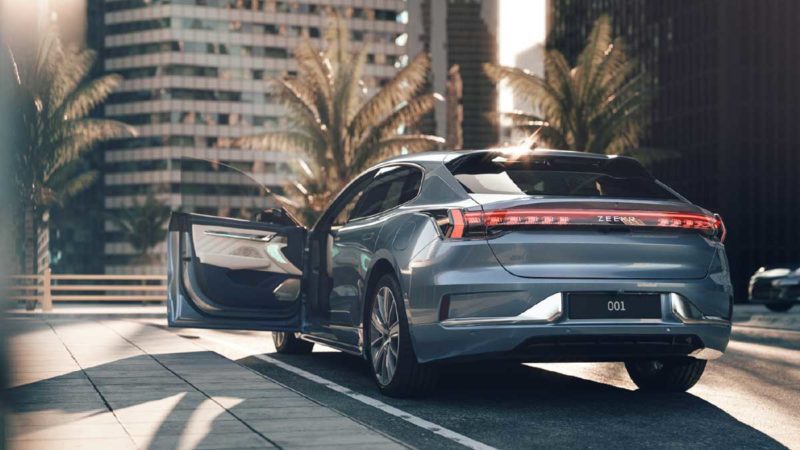Chinese automotive giant Geely Auto Group has targeted annual sales of “new energy” vehicles of nearly a million by 2025, with new energy vehicle sales accounting for over 40% of the company’s vehicle sales by the middle of the decade.
The Geely Auto Group held a “Smart Geely 2025” event on Sunday in which they outlined their eponymous strategy for the next three years that will attempt to put the company “at the forefront of the global automotive industry”.
Specifically, Geely will aim to reach annual sales of 3.65 million by 2025, with 900,000 of those expected to be new energy vehicles including battery electric vehicles (BEVs), hybrid electric vehicles (HEVs), and plug-in hybrid electric vehicles (PHEVs).
According to a Google-translated version of the company’s Chinese-language press release following the event, “By 2025, Geely Automobile Group’s new energy sales will reach 900,000 vehicles, accounting for 30%. Coupled with the Jikrypton brand, Geely New Energy’s overall sales will account for more than 40%.”
Jikrypton is Geely’s pure electric brand and will therefore lead the way, but it is by no means Geely’s only brand building electric vehicles.
Over the next five years Geely is planning to launch more than 25 new smart vehicle products across its brands. This will include more than 10 intelligent and electrified models from Geely Auto, 5 new models developed on pure electric platforms and the company’s own SEA architecture for its Geometry brand, and 5 new smart models from Lynk & Co.
Additionally, Geely Auto Group will launch in 2023 a new battery swapping mobility brand along with 5 new smart battery swapping pure electric models.
Navigating Geely’s many subsidiary brands can be tricky, especially when managing variations between the company’s own English press release versions and Google-translated versions of their Chinese-language press releases.
As such, it looks as if Geely’s Jikrypton (or Krypton) subsidiary is the parent of the company’s Zeekr brand and will account for 650,000 annual sales by 2025.
Geely – which also owns international automotive brands such as Lotus and Volvo – is not only focusing expanding its Chinese brands across China but is looking to expand into a range of international markets.
For example, Geely will focus on developing its eponymous brand in the Eastern Europe, Middle East, Southeast Asia, and South America markets as well as introducing new energy products to EU and Asia-Pacific markets. Meanwhile, Geely’s Lynk & Co brand will look to expand its global presence by entering Russia, Malaysia, Australia, and New Zealand, among others.
The Smart Geely 2025 event also saw the launch of the company’s new Leishen Power brand, which Geely is positioning as “a leading intelligent high-efficiency powertrain solutions provider.”
Products under the Leishen Power brand include the Leishen Hi-X smart hybrid powertrain platform, high-efficiency hybrid transmissions, high-efficiency dedicated hybrid engines, and a new generation E-Drive motor.
Geely is aiming to offer a range of electrified mobility options including ultra-reliable hybrid electric vehicles, a 200-kilometre range PHEV, and ranged extended models.
Combined with the new Leishen Power brand and Geely’s SEA architecture are three other modular architectures that have been developed between Geely Auto and Volvo Cars, including the BMA, CMA, and SPA, all of which are compatible with petrol models as well as HEV, PHEV, and BEV models.
On top of that is another advanced electronic and electrical architecture, GEEA2.0, which acts as the central nervous system for vehicles, and which will evolve to GEEA3.0.
Joshua S. Hill is a Melbourne-based journalist who has been writing about climate change, clean technology, and electric vehicles for over 15 years. He has been reporting on electric vehicles and clean technologies for Renew Economy and The Driven since 2012. His preferred mode of transport is his feet.

